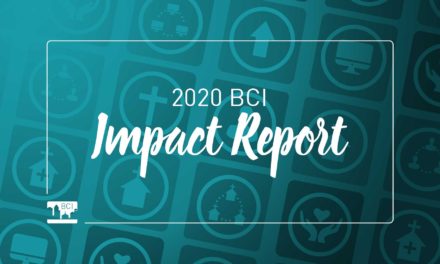 The young woman stands alone under a streetlight, hugging her bare arms against the chilly night air. The sidewalk is teeming with people passing by, but she stays put, occasionally shifting from one stiletto heel to the other. She talks to no one, and no one talks to her. A car pulls up to the curb, and she steps forward to greet her next customer.
The young woman stands alone under a streetlight, hugging her bare arms against the chilly night air. The sidewalk is teeming with people passing by, but she stays put, occasionally shifting from one stiletto heel to the other. She talks to no one, and no one talks to her. A car pulls up to the curb, and she steps forward to greet her next customer.
As a little girl, this was never the life Elisabeth had envisioned for herself.
“I had a lot of dreams,” she remembers, smiling sadly at the memories of a childhood long gone. “I wanted to be a policeman, and then a pediatrician. I wanted to be something. I never wanted to be what I am.”
Elisabeth is one of thousands of women who work the streets of downtown Lima, Peru, where prostitution is legal and growing. As the nation’s economy improves and people flock to the city, more and more girls can be found working on almost every corner at night. The industry is so prevalent that the government is considering creating an official red light district.
For Elisabeth at 19, struggling under the weight of family dysfunction and financial desperation, prostitution had been a quick road to cash and independence. But she wasn’t prepared for the emotional toll the job would take.
“It felt horrible,” says Elisabeth, now 28. “I felt horrible. The first day I worked, I would go in with a client and come out crying. You feel horrible because you’re seeing so many clients, one right after another. And when we’re on the streets, people often yell at us, insult us. Sometimes they pass by in cars and throw money at us and call us whores.”
Despite the job’s downsides, many women like Elisabeth are drawn by the promise of quick money. Still more women and young girls are trafficked in from jungle and Andean communities and forced into the lifestyle by cartels and criminal organizations. The sexual exploitation of women under 18 is illegal in Peru, but the law is rarely enforced.
“Some are only 11, 12 years old,” Elisabeth says. “I know a girl whose mother sent her to the streets. Her mother used to work there but she got old, so she sent her daughter to work, instead. That’s very common.”
For others, prostitution is the family business. Three generations of women from the same family sometimes work a street. The young woman may charge 20 soles (about $7) for her services, while her grandmother can get as little as five soles (less than $2).
ON THE STREET
Elisabeth stands in the middle of her street in Lima, Peru. Now 28 years old, she first began working the streets as a prostitute when she was 19.
Photo © 2014 IMB / Rebecca Springer
Elisabeth recently became a believer and is trying to leave the streets behind. But even with her new faith, she struggles to abandon the only lifestyle she’s ever known as an adult. It’s a common problem among these women, the desire to change hampered by a damaged sense of dignity and self-worth.
For IMB missionaries Quentin and Gina Roberts, the situation is beyond heartbreaking.
“Many of these women are as young as 14 and 15 years old,” says Quentin.
“Some of these women live two and three hours away from Lima,” Gina adds. “Their families think they are here for school or working a job, but prostitution is really what they’re doing.”
In the past, the Robertses tried to begin a ministry to train women in sewing, hairdressing and other marketable skills to get them off the streets.
“We didn’t have the resources to work alone, so we had to join in with something that was already in place,” Gina said. “We were trying to join with the social services. Our program was that the women could get training to do hair or nails or all these different things, but it was on the condition that they had to attend a Bible study. We worked on the proposal for five or six months, having to get approval from all these levels. However, in the end, the project was not realized.”
But this setback didn’t keep Quentin and Gina from working with prostitutes. Some members of their Bible studies — both men and women — have left the streets and are now following Christ, including the former manager of a brothel.
“We have persons in our group who have been in that lifestyle and we work with them individually,” Gina says. “We have one lady who is now trying to learn the Word, and she’s traumatized to realize she had been in that lifestyle. She had a sense of guilt and remorse and depression. So we work with people who are dealing with things like that.”
The Robertses also hold Bible studies at a local hospital for victims of HIV, a disease rampant among sex workers in Lima.
Quentin and Gina are currently the only IMB missionaries specifically working in inner-city Lima. With thousands of women and children trapped in the industry, the problem can seem overwhelming for one couple. Pray for the Robertses as they minister in this dangerous area, that God would open doors for them to openly share the Gospel with those who have no hope.
Pray
- Pray for missionaries Quentin and Gina Roberts as they seek to prepare and equip churches to develop outreach ministries for urban marginalized population groups dealing with issues such as HIV, sexual exploitation, substance abuse and domestic violence.
- Pray for God’s guidance and wisdom in training and mobilizing national Christians for community ministry leadership.
- Pray for national Christians to have a greater sensitivity to the spiritual needs of urban marginalized populations.
For more information about human trafficking attend one of the Nefarious: Merchant of Souls Human Trafficking Events.








